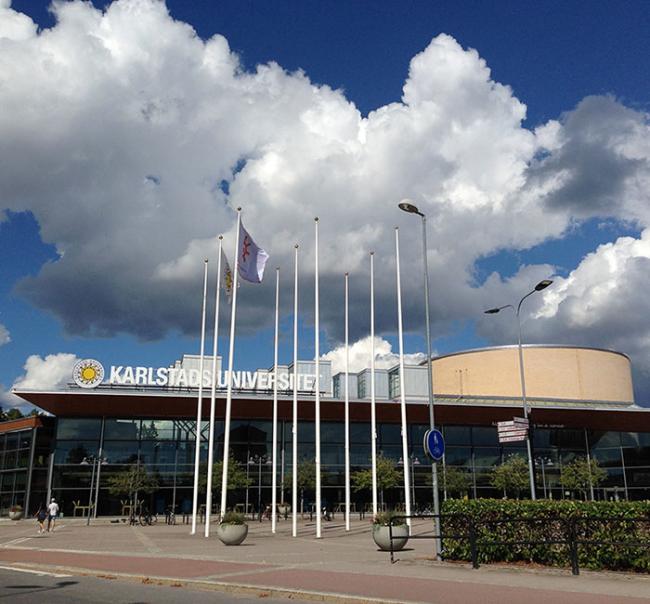About CSR
The Centre for Societal Risk Research (CSR) is a research centre at Karlstad University specialising in society’s understanding and management of risks in a world where risk and security issues are becoming increasingly complex and vital.

CSR is a research centre that creates and shares knowledge about societal risks and the role of society in relation to these risks. Research questions are centred around causes and consequences of societal risks and about society’s and the individual’s vulnerability to and capacity to manage these risks. CSR consists of a large group of researchers from various academic disciplines and representatives with a background in public administration and business.
DIRECTORS
2022 – Senior Lecturer Johanna Gustavsson, Risk and Environmental Studies
2020 – 2022 - Professor Mikael Granberg, Political Science, and Docent Finn Nilson, Risk and Environmental Studies
CO-FUNDING AND DEVELOPMENT COLLABORATIONS
Through a collaboration with Karlstad municipality, covering the period 2023-2025, the municipality participates as a co-funder of the activities at CSR.
Excerpt from decision by the Karlstad municipal board on base funding
Dnr KS/2022:614
“In a society where risk and security issues are becoming increasingly complex and important for society, a research centre is considered to have great opportunities to be prominent and contribute to putting both Karlstad University and Karlstad municipality on the map in terms of research and communication about societal risks. A centre enables the management of larger research projects, more international collaboration and a number of different synergy effects. The centre is also an important partner in the municipality’s mission to develop Karlstad as a hub of expertise in societal risks, but also from a budget perspective for the period 2023–2025, which includes increasing the municipality’s capacity within civil defense and preparedness.”
Karlstad municipality is represented in the CSR advisory committee.
BACKGROUND
CSR was established in 2020 as the product of a merging of two previous research centres at Karlstad University: the Centre for Climate and Safety (CCS) and the Centre for Public Safety (CPS). Important arguments of the merger was to stimulate larger research projects, increased international collaboration and administrative synergies.
- The predecessor Centre for Climate and Safety was formed in 2008 as an interdisciplinary research centre that aimed to act as a resource in research and learning on climate related risks and the management and governance of such risks. To a large degree, CCS focused on uncommon and relatively big scale events connected to extreme weather such as heavy rain, floods and windstorms.
- The other predecessor, Centre for Public Safety, was formally established in 2013 and aimed at providing a collected cross-sectorial support for public safety work connected to everyday events. The work of CPS was also to a large degree multidisiplinary consisting of research, inquiries and development.
Collaboration between CPS and CCS increased over the years, partly since the expertise of the two research centres also had been the foundation of the master’s programme Risk Management in Society, but also through the formation of a new discipline at Karlstad University – Risk- and Environmental Studies – in which both centres had their core activities. Another area of collaboration was the development and use of the RiskLab.
Over the years leading up to the merger, there was also a perceivable change in how society managed risk and safety, which made these issues hard to categorise as “climate related” or “public safety related”. Instead, focus gradually shifted to “society related” risks where the climate, society and humans interact in complex ways.
ORGANISATION
A research centre at Karlstad University is a formation meant to facilitate and develop research collaboration across disciplinary, departmental and faculty borders. Research centres also function as an interface for research collaboration with various parts of society at large. The establishment of a research centre signifies a long-term investment in the research area on the university’s behalf.
CSR belongs to the Faculty of Arts and Social Sciences at Karlstad University. Our research questions are interdisciplinary and requires expertise from natural sciences, social sciences, the humanities and medical sciences to find answers and solutions. Overall, CSR constitutes a broad and multidisciplinary team.

